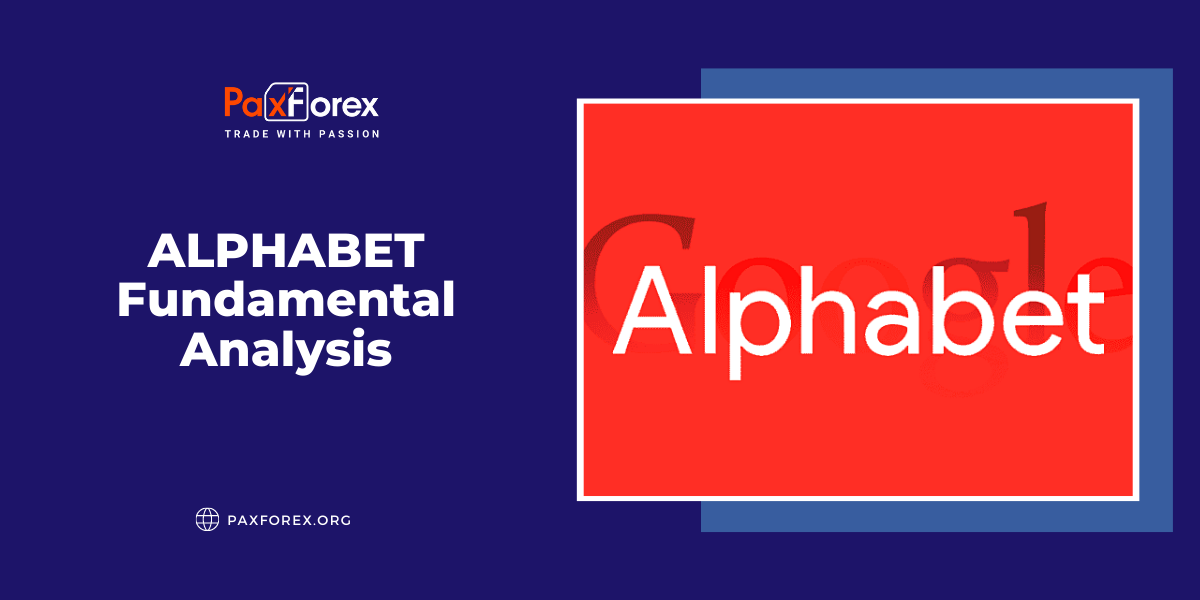
Source: PaxForex Premium Analytics Portal, Fundamental Insight
Just weeks after OpenAI launched ChatGPT, Microsoft is reportedly working on how to incorporate it into its Bing search engine.
When OpenAI released its new ChatGPT AI bot, a large language model (LLM) capable of writing code and telling jokes, on Nov. 30, one of the first things investors concluded was that it could become a threat to Alphabet's Google Search.
Although ChatGPT is not connected to the Internet, the implications of the interface are wide-ranging, and it is easy to see how it could, if not replace, then challenge Google, since it already provides better and clearer answers to some questions.
Shortly after the release of ChatGPT, Google announced Code Red, and CEO Sundar Pichai redirected some teams to work on AI projects.
Despite Alphabet's attempts to diversify its search advertising business, about half of its revenue comes from Google Search and even most of its profits. Newer businesses such as Google Cloud and other bets that include autonomous vehicle startup Waymo are losing billions of dollars a year.
According to The Information, Microsoft, which is an investor in OpenAI, is working on a plan to launch an artificial intelligence-enabled version of Bing by March.
It's not entirely clear how Microsoft is going to use ChatGPT, but there are a number of ways that AI can improve standard Internet search, which produces Web pages that may or may not contain the information the user is looking for. ChatGPT, on the other hand, is conversational and can reduce information to a paragraph, something traditional Internet search cannot do.
For example, one potential application of AI-powered search could be to take reviews from a site such as Yelp and summarize them so that the user has an idea of the general opinion of a restaurant or commercial enterprise. AI-powered search is also capable of adding context to searches, something that Google searches typically don't do.
The deployment of AI-powered Bing may be slow, as even OpenAI CEO Sam Altman said that "it would be a mistake to rely on [ChatGPT] for something important right now." But better versions of ChatGPT will emerge, and the technology for search and other purposes will only get better. The threat to Google is real.
Right now, Google is stuck in a classic innovator's dilemma. The company is well aware of the threat from AI. In fact, it has developed its own big language model, LaMDA, which many consider better than ChatGPT.
However, Google is reluctant to use AI in its search because of accuracy and bias problems and sees "reputational risk" in providing such tools. There is also the dilemma of the fact that Google search as it stands is highly profitable, and the company prefers not to interfere with it unless necessary. In fact, the company has made virtually no changes to the Google Search interface throughout its history. It's a high-performance business as it is.
This gives an advantage to OpenAI, a company that seems to be innovating to push the boundaries of technology, not just to supplement its profits, and positions the company as a fearless disruptor against the frozen goliath Google.
Even if Bing succeeds, it will take time to challenge Google's leadership in search, but it may be easier than some investors think. In the end, Google Search may seem to have significant competitive advantages, but they are all essentially tied to its brand and reputation as the best search engine. There are no switching costs or even network effects here, and if users think there is a better way to get information, they are likely to switch to another platform.
It would be a mistake for Google to just stand still while the technology moves forward. The company would have to take steps to protect its market share, but that could mean undermining its highly profitable advertising empire, which underlies its $1 trillion valuation.
If you are an investor in Alphabet, this issue deserves your attention. The company's stock may look cheap, but it could fall even more if its search tool is threatened.
As long as the price is above 85.00, follow the recommendations below:
- Time frame: D1
- Recommendation: long position
- Entry point: 91.75
- Take Profit 1: 95.00
- Take Profit 2: 101.00
Alternative scenario:
If the level of 85.00 is broken-down, follow the recommendations below:
- Time frame: D1
- Recommendation: short position
- Entry point: 85.00
- Take Profit 1: 80.00
- Take Profit 2: 75.00













